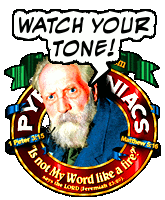The burden of this reply lies, however, in actually producing a linguistic theory that sustains a principled class of sentences that could seriously be regarded as analytic in this way. This, as yet, it is by no means obvious that it can do. Some of its most prized examples, such as (10) in set II, linking killing to death, have been contested on linguistic grounds (see Fodor (1970, 1998), but also Pietroski (2002) for a recent, technical reply). And many linguists (e.g., Jackendoff (1992), Pustejovsky (1995)) proceed somewhat insouciantly to include under issues of “meaning” and “conceptual structure” issues that are patently matters merely of ordinary belief or even merely phenomenology. For example, Jackendoff and others have called attention to the heavy use of spatial metaphors in many grammatical constructions; but, of course, from such facts it doesn't begin to follow that the many domains to which these metaphors are extended, say, the structure of the mind, social relations, or mathematics are, themselves, somehow intrinsically spatial.{Emph added}I wonder: does this paper itself have any sentences that can be classed as analytic? If not, do the words in this paper actually do anything epistemologically, or are they just some linguistic gaussian cloud which barely maintains existential weight?
Moreover, does this view of language include the metaphysical presupposition of God? That's a question that will never get answered, I am sure.







 As you undoubtedly noticed, I like comics. I wouldn't call myself a "fan boy" because I don't give a flying FOOM what they are worth. That said, almost all the images on my blog are scanned from comics I own -- so they are scanned from comics I own and are used under what I assume is
As you undoubtedly noticed, I like comics. I wouldn't call myself a "fan boy" because I don't give a flying FOOM what they are worth. That said, almost all the images on my blog are scanned from comics I own -- so they are scanned from comics I own and are used under what I assume is 

0 comments:
Post a Comment